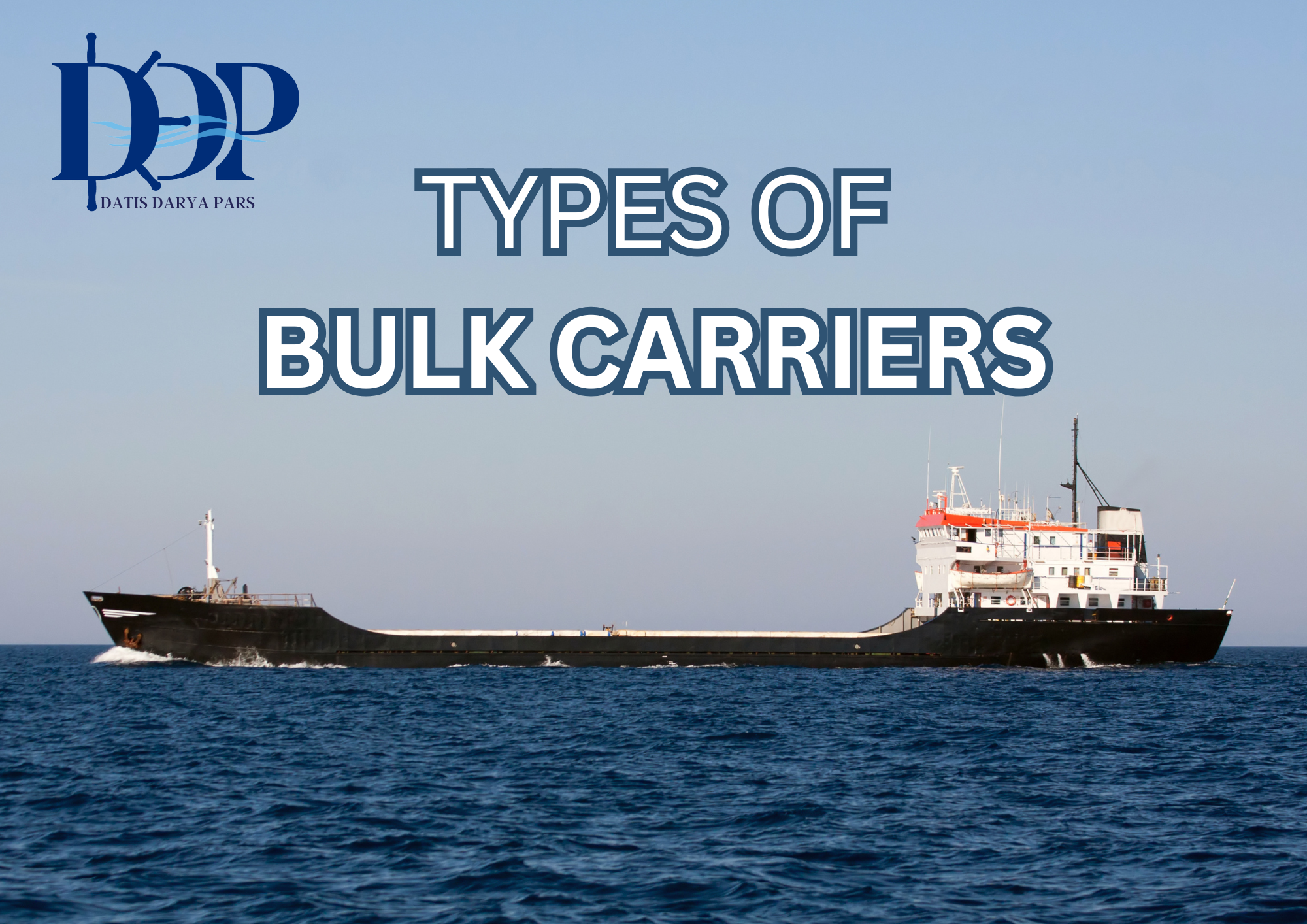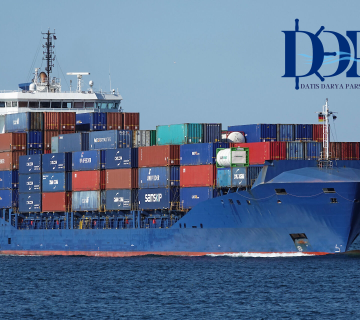Bulk carriers are a category of vessels specifically designed for transporting bulk goods, meaning goods that are shipped unpackaged, primarily without any container or packaging. These goods include raw materials such as grains, coal, iron ore, cement, and other minerals. Due to their high capacity for carrying large volumes and economic efficiency, bulk carriers play an important role in global trade and are used as a primary means of transport for these types of goods in many countries.
Types of Bulk Carriers
In the shipping industry, there are several major types of bulk carriers, each designed to carry a specific kind of bulk cargo. Below, we introduce these types and describe the characteristics of each one.

- Dry Bulk Carriers
This type of bulk carrier is specialized for carrying dry and solid cargo, such as grains, coal, and iron ore. Key features of dry bulk carriers include powerful ventilation systems and corrosion-resistant hull structures. Additionally, these carriers are typically equipped with special equipment for loading and unloading cargo.
- Liquid Bulk Carriers
As the name suggests, liquid bulk carriers are designed to transport liquid bulk cargo. These vessels are primarily used to carry materials such as crude oil, petroleum products, chemicals, and liquefied gas. Due to the nature of the cargo they transport, these ships are specially designed and feature tanks that are resistant to corrosion and leakage.
- General Bulk Carriers
These types of vessels are used for transporting various types of bulk cargo, both dry and liquid. However, their capacity and available equipment may be more limited compared to specialized bulk carriers. These ships are mostly used when the volume of bulk cargo is relatively low and there is no need for specialized loading or unloading facilities.
- Gas Carriers
Gas carriers are designed to transport pressurized liquefied gases, such as LPG (Liquefied Petroleum Gas) and LNG (Liquefied Natural Gas). These vessels feature specialized systems for maintaining the very low temperatures required to keep the gas in liquid form and prevent leaks. Additionally, complex safety systems are installed to prevent explosions or fires in this type of carrier.
- Special Bulk Carriers
This type of vessel is built for transporting goods that require specific storage conditions, such as cement. For example, cement carriers have special silos and transfer systems to prevent moisture and reduce risks associated with cement storage.
The Importance and Role of Bulk Carriers in the Economy
As one of the primary tools of maritime transport, bulk carriers play a vital role in the global supply chain. Due to their high capacity and lower costs compared to other transport methods, especially over long distances, they are highly popular. Additionally, due to increasing global demand for natural resources and raw materials, the role of bulk carriers in transporting these goods to various global markets has become even more prominent.

 then 'Add to home screen'
then 'Add to home screen' then 'Add to home screen'
then 'Add to home screen'



بدون دیدگاه